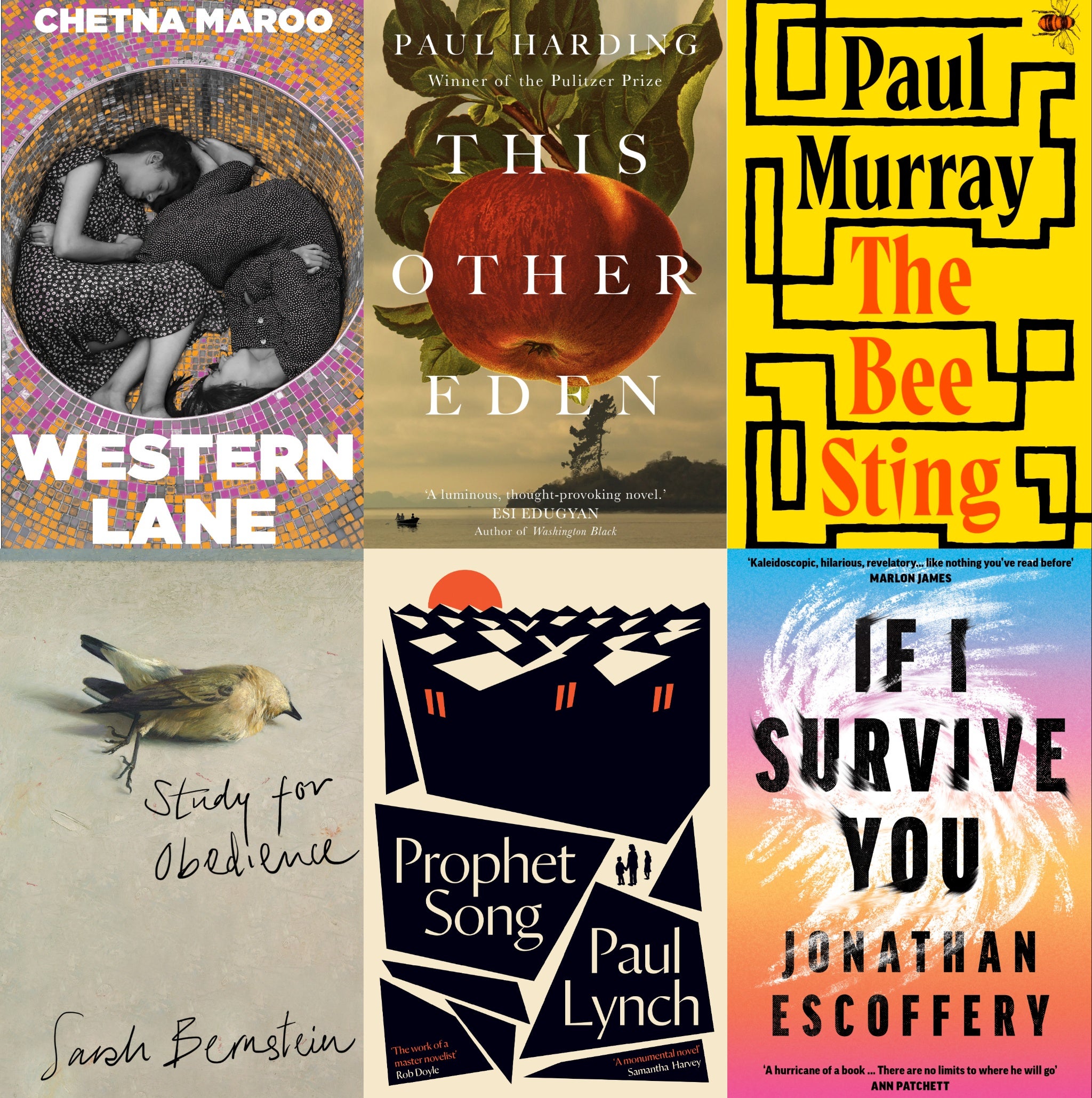Booker Prize 2023: Six shortlisted authors tackle immigration, identity and the climate crisis
All six authors are shortlisted for the prestigious award for the first time, with their work exploring themes of sisterhood, immigration, conflict and change
Your support helps us to tell the story
From reproductive rights to climate change to Big Tech, The Independent is on the ground when the story is developing. Whether it's investigating the financials of Elon Musk's pro-Trump PAC or producing our latest documentary, 'The A Word', which shines a light on the American women fighting for reproductive rights, we know how important it is to parse out the facts from the messaging.
At such a critical moment in US history, we need reporters on the ground. Your donation allows us to keep sending journalists to speak to both sides of the story.
The Independent is trusted by Americans across the entire political spectrum. And unlike many other quality news outlets, we choose not to lock Americans out of our reporting and analysis with paywalls. We believe quality journalism should be available to everyone, paid for by those who can afford it.
Your support makes all the difference.Immigration, poverty, extremism and the climate crisis are among the weighty themes tackled in this year’s Booker Prize shortlist, which was announced at the newly opened National Portrait Gallery in London.
The six authors picked to compete for the prestigious literary award are all first-time nominees, the shortlist unveiled on Thursday 21 September revealed, but none of them shied away from difficult subjects.
In a strange quirk, three of the shortlisted authors are named Paul. However, this is the first time in eight years that the Booker Prize shortlist has been skewed towards male writers.
The shortlist includes US writer Jonathan Escoffery and the UK’s Chetna Maroo, both shortlisted for their debuts, and Irish authors Paul Lynch and Paul Murray. Canadian writer Sarah Bernstein and US author Paul Harding make up the final two shortlisted entries.
In many of the six works, the question of identity is explored through characters struggling to find their place in the world. Bernstein’s unsettling second novel, Study for Obedience, follows a woman travelling from her birthplace to an unnamed northern country to care for her brother. Upon her arrival, a series of disturbing events sparks suspicion and hostility from the local community. And in If I Survive You by Escoffery, US-born Trelawny wrestles with both his masculinity and Jamaican heritage.
Other books are intimate portraits of families in crisis. Maroo’s Western Lane, published by Picador, follows three British-Indian sisters reeling from the death of their mother in a vivid depiction of grief, love and sisterhood. Meanwhile, Dublin-born Murray’s The Bee Sting flits between the perspectives of husband and wife Dickie and Imelda, and their children, Cass and PJ, a well-to-do Irish family whose financial problems threaten to tear them apart.
Some were inspired by real-life events, such as Harding’s This Other Eden, which was influenced by the true story of Malaga Island while depicting an isolated community at risk of being wiped out by white interlopers. Lynch’s Prophet Song, published by OneWorld, places the conflict in Syria in a reimagined Republic of Ireland, documenting the slip into totalitarianism after the victory of a rightwing party strips the public of their most basic freedoms.
See the full shortlist below:
Sarah Bernstein, Study for Obedience (Granta Books)
Jonathan Escoffery, If I Survive You (4th Estate)
Paul Harding, This Other Eden (Hutchinson Heinemann)
Paul Lynch, Prophet Song (Oneworld)
Chetna Maroo, Western Lane (Picador)
Paul Murray, The Bee Sting (Hamish Hamilton)

The shortlist was announced by chair of the judging panel, novelist Esi Edugyan, who has been twice-shortlisted for the Booker Prize herself. The other judges are actor, writer and director Adjoa Andoh, poet, lecturer and critic Mary Jean Chan, author and professor James Shapiro, and actor and writer Robert Webb.
The judges selected the final six novels from the “Booker Dozen”: 13 longlisted titles which were, in turn, chosen from 163 books published between 1 October 2022 to 30 September 2023.
Each shortlisted author will receive £2,500 and a bespoke bound edition of their book, while the winner, who will be announced on 26 November, receives £50,000. The winning author can also expect a flurry of publicity, interest, and an increase in book sales. Last year’s winning novel, The Seven Moons of Maali Almeida by Shehan Karunatilaka, has since been translated into 19 languages and sold over 100,000 copies across all formats.
Edugyan said: “The best novels invoke a sense of timelessness even while saying something about how we live now. Our six finalists are marvels of form. Some look unflinchingly at the ways in which trauma can be absorbed and passed down through the generations, as much an inheritance as a well-worn object or an unwanted talent.
“Some turn a gleeful, dissecting eye on everyday encounters. Some paint visceral portraits of societies pushed to the edge of tolerance. All are fuelled by a kind of relentless truth-telling, even when that honesty forces us to confront dark acts. And yet however long we may pause in the shadows, humour, decency, and grace are never far from hand.”
Observing the skew towards male writers this year, Edugyan said that it was “the strength and the quality of the work that landed these writers” on the shortlist.
Webb joked that “it was very much the work that we were concentrating on rather than whether or not they were called Paul”.
The Booker Prize 2023 ceremony takes place on Sunday 26 November at Old Billingsgate, London, and will be broadcast in a special 30-minute edition of BBC Radio 4’s Front Row at 9.30pm.




Join our commenting forum
Join thought-provoking conversations, follow other Independent readers and see their replies
Comments